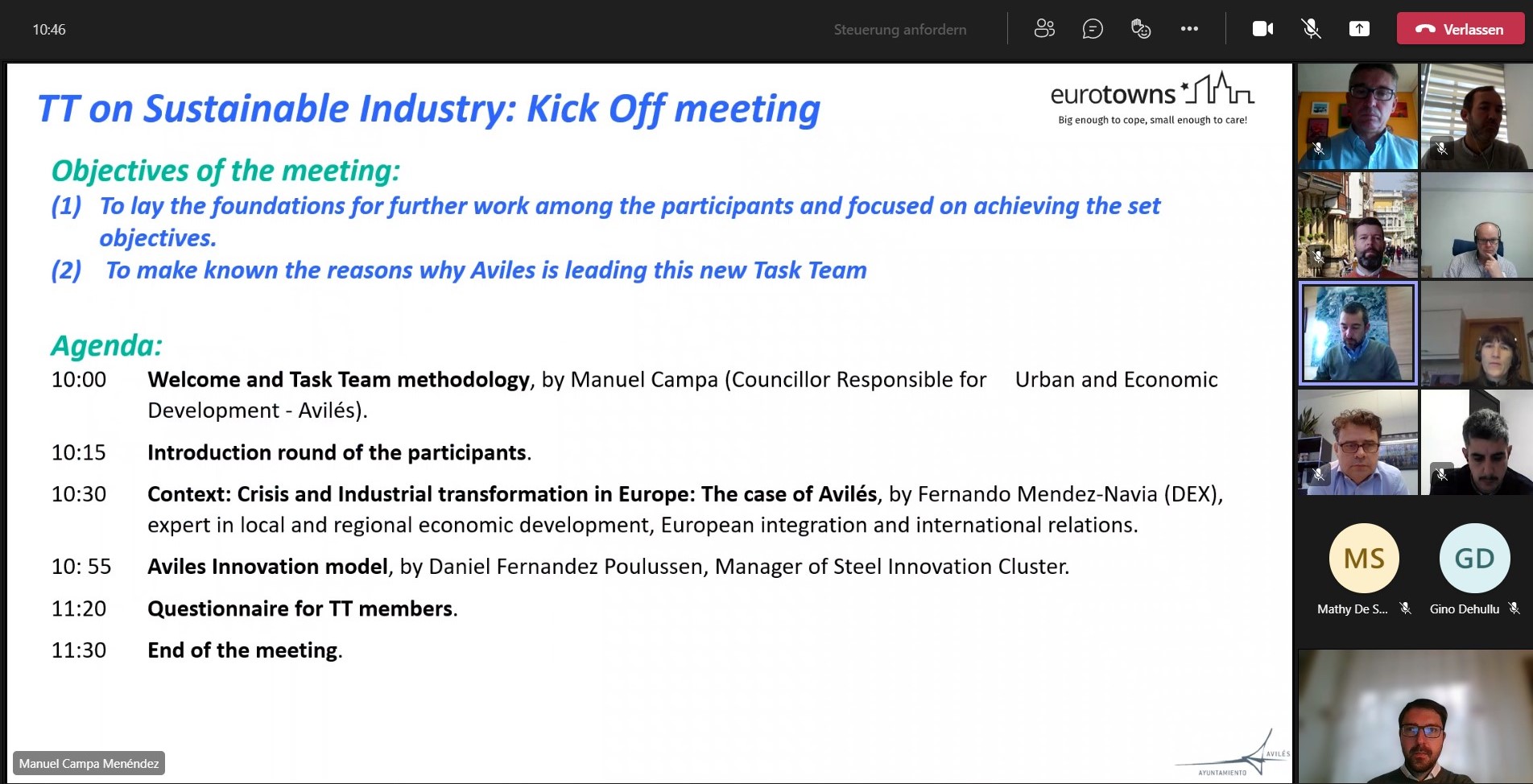This website uses cookies to help us provide you with the best possible user experience. Cookie information is stored in your browser and performs functions such as recognition when you return to our website, helping our team to understand which sections of the website are most interesting and useful to you.
Eurotowns Team
Eurotowns – the development of a cultural project
Name of TT leader:
City of Schiedam and City of Haarlem
Main topics:
- How to involve the cultural and creative sector into city marketing.
Objectives:
- Exchange knowledge about culture and citymarketing (with academic involvement).
- Increasing the pride of the residents on the city by developing a joint cultural Project.
Past, ongoing and future projects:
- Exchange of knowledge is an ongoing process for the Eurotowns members.
- The development of a cultural project as a cooperation of multiple partners.
- The report of the last TT meeting can be found here
Contact for TT:
Carla Vermunt, City of Schiedam
Cjm.vermunt@schiedam.nl
Anneke Boele, City of Haarlem
europe@haarlem.nl
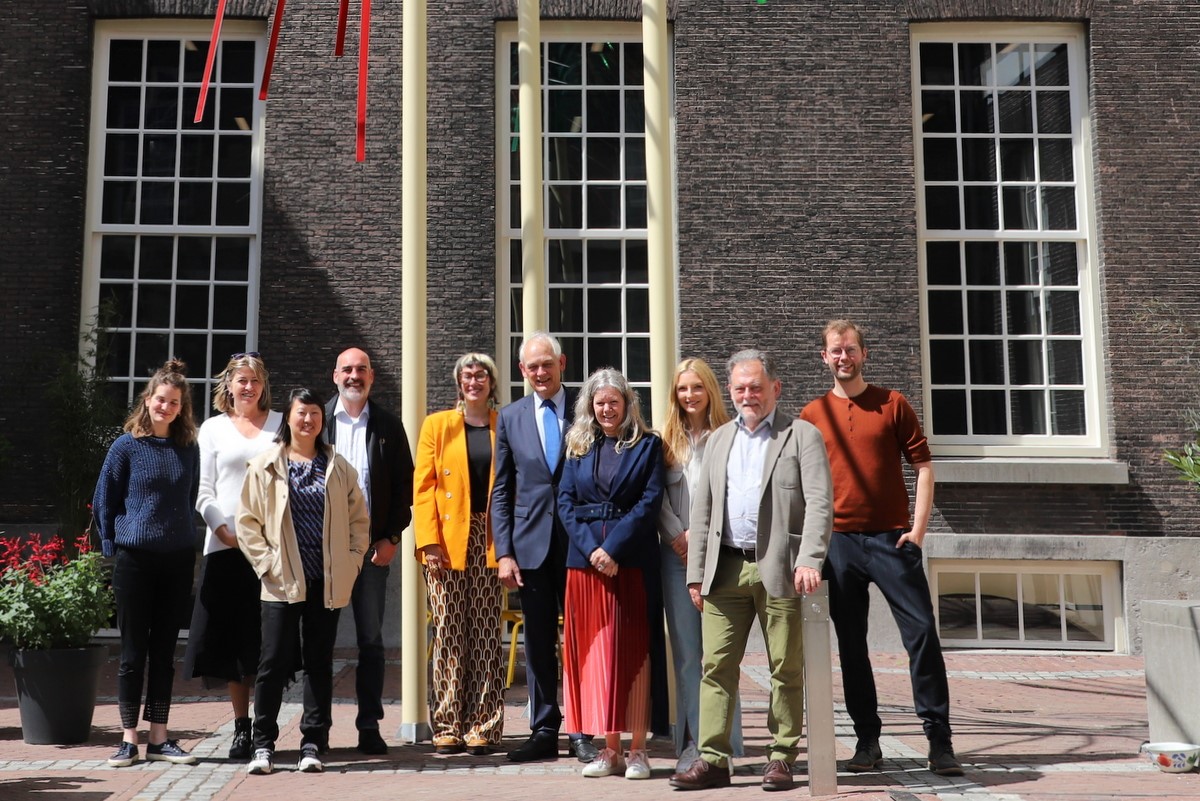
Eurotowns – Innovation Team
Name of TT leader:
Co-leadership Sabadell – Gävle
Main topics:
- City challenges and the quadruple helix approach:
Building on the triple helix model, the quadruple helix model adds the civil society as a fourth component to the frame-work of interactions between university, industry and government. How do local challenges could be faced up fostering the participation of citizens? The possibility to apply this new model in the field of entrepreneurship gives local authorities a chance to carry out actions with an economic impact in their territory. Which support measures are implemented? How is it fostered at the local level? Are there initiatives of territorial ecosystem networks? Sharing success stories and what didn’t go that well will for sure be inspiring for all Eurotowns members.
- Municipal cooperation with technology centers:
Usually, many medium-sized cities do not have great connections with research and technology institutions. They do have these assets in their territory but don’t have the necessary links that would facilitate building up a more competitive and interconnected ecosystem. Sharing experiences among Eurotowns members would facilitate learning from each other on innovative ways to foster the establishment of such connections in cities of similar dimensions. Shared projects could result of this exchanges that would go more in deep on the transnational learning as well as facilitate testing the applicability of identified good practices.
- Smart specialization at the local level:
How to specialize a local or supralocal territory considering smart specialization strategies are regional, not local. Is it possible? YES! How does it work? In this sense we can bring in our experience in developing the Sabadell’s Specialization and Territorial Competitiveness Project (PECT), how we deal with regional administration on this issue, which are the instruments provided at the local level to implement RIS3, etc. On the other hand, we are currently leading the Interreg Europe project RELOS3 which is about sharing different perspectives and/or ways of implementing regional smart specialization strategies at the local level.
- (Industrial) circular economy, symbiosis:
Circular economy is a hot topic on the international agenda of Eurotowns. It raises a new type of economy where we consume in moderation, products have a longer lifetime, we limit waste and we are able to transform waste into new resources. It obviously has an impact to facilitate economic recovery, increase competitiveness, create jobs and reduce environmental risks. Do cities have a role in this? Sure! Circular economy has actually been included as one of the twelve topics in which the EU Urban Agenda is focused on, pointing out that cities are an attractive starting point to facilitate the transition to this new economic model. Initiatives at the local level in this field may range from waste prevention or water manage-ment policies to fostering a collaborative economy at the local level or mainstreaming the concept of circular economy among locally-based Deepening into industrial side of circular economy, known as industrial symbiosis adds an interesting field of work for our cities.
- Innovative public procurement:
As for the above mentioned topic, public procurement is also one of the hotspots in the EU Urban Agenda. Innovative public procurement procedures are understood as to be a catalyst to boost innovative initiatives at the local level in a broader sense. Municipalities have an important lever at their disposal through the public procurement of goods, services and works to improve and foster sustainability at the local level. Besides, relevant work could also be done by improving the governance of public procurement and putting in place effective metrics systems on public spend and its impact. This is just to mention some issues linked to the public procurement topic with an application at the local level. Many others are in place and there is certainly an interest (as well as expertise) on this topic among Eurotowns members!
- Procedures digitalization in public administration:
The digital transition is also included in the EU Urban Agenda. Local administrations are the public sector’s primary interface with both citizens and businesses, being at the forefront of delivering many of the key public services for the citizen. Getting into the car of digital transformation will have an undeniable impact in transforming the way services are delivered at the local level and how communication is carried out between citizens and the local administration. Initiatives in that field from the local perspective may be focused on data-sharing projects that may aim to facilitate the co-creation of solutions among the local government, citizens and the private sector; they could also focus on digitizing processes and services such as deploying consolidated online-access platforms, etc.; or on moving one step forward ‘traditional’ public infrastructures such as street lighting or traffic management, just to mention a few.
Objectives:
- Identify and align innovation issues that city members are currently working on and/or have experience on to be shared with the other members as well as identified challenges in the innovation field.
- Serve as a meeting point to debate and exchange experiences on the topic.
- Align and prioritize innovation topics with EU existing programmes and EU agenda topics.
- Design projects fitting those challenges and the upcoming calls for proposals.
Past, ongoing and future projects:
- Following-up on the agreements reached in the General Assembly of Eurotowns in Schiedam in October 2018, work has been done to move forward on rebuilding the working methodology of the task team.
- This new approach was needed in order to better engage Eurotowns members in participating in the task team. To do so, new working tools will be used, such as online meetings as well as the implementation of a co-leadership of the task team. Work has also been done to better define the task team’s topics of interest and to decide in a collaborative way the ones in which the task team would focus its work at least for a while.
- This new methodology will facilitate the alignment of interests and expertise among Eurotowns members around the selected topic(s). As a result, this will most probably open the door to build up common projects in that field.
Contact for TT:
Iolanda Repullo – Head of the Economic Promotion Office, Sabadell City Council
irepullo@ajsabadell.cat
Annika Lundqvist – Head of International Office , Municipality of Gävle
annika.lundqvist@gavle.se
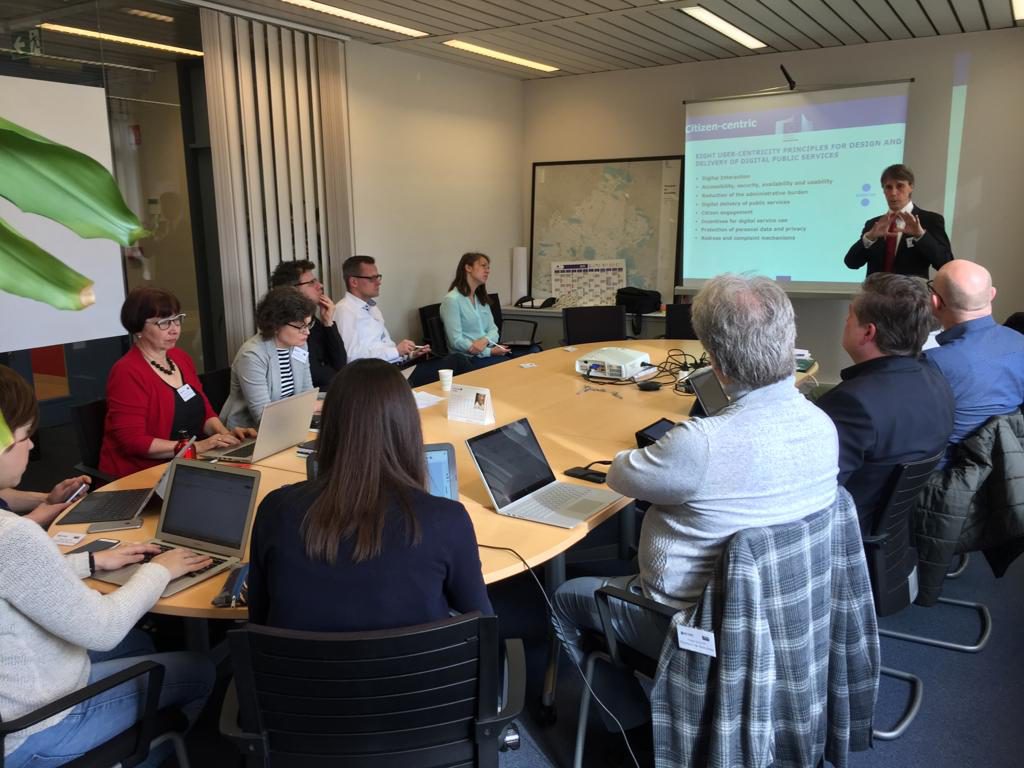
Focus on infrastructure and communication – Task Team Mobility
Name of TT leader:
City of Varberg
Main topics:
The main interest of the member cities focus on infrastructure and communication in the following topics:
- Sustainability (a.o. shift of modal split; smart city)
- Safety (a.o. school mobility)
- Liveability (a.o. civic participation)
- Accessiblity (a.o. behavioural Change)
Objectives:
- To identify and share information about mobility issues that are actual and future common challenges for medium-sized cities.
- To organize masterclasses in order to exchange specific experience that Eurotowns members implemented in their own city, good practices as well as lessons learned.
- To generate new initiatives and realise research for application for EU funding if specific common project ideas can be confirmed by at least 3 members.
- To create synergies throughout partnerships with external stakeholders such as universities, private companies and professional associations in order to deliver innovative expertise.
Past, ongoing and future projects:
- In 2016, the city of Hasselt organized a TT meeting that presented specific exchange about cycling strategies and promotion.
- In 2017, there was a follow-up TT meeting in Gävle, focused on local biking policy, with special attention to monitoring systems.
- In 2018 a general survey has been launched to invite all member cities to express their interest and to deliver specific topics that can be interesting for future TT meetings.
- In 2019 the City of Varberg took over TT mobility and is working on the prioritites for the next years
- One of the priorities for 2021 was the coordination of joint Eurotowns activities during the European Mobility Week in September this year.
Contact for TT:
Max Wehlin – Strategist Infrastructure and Analysis, City of Varberg
max.wehlin@varberg.se
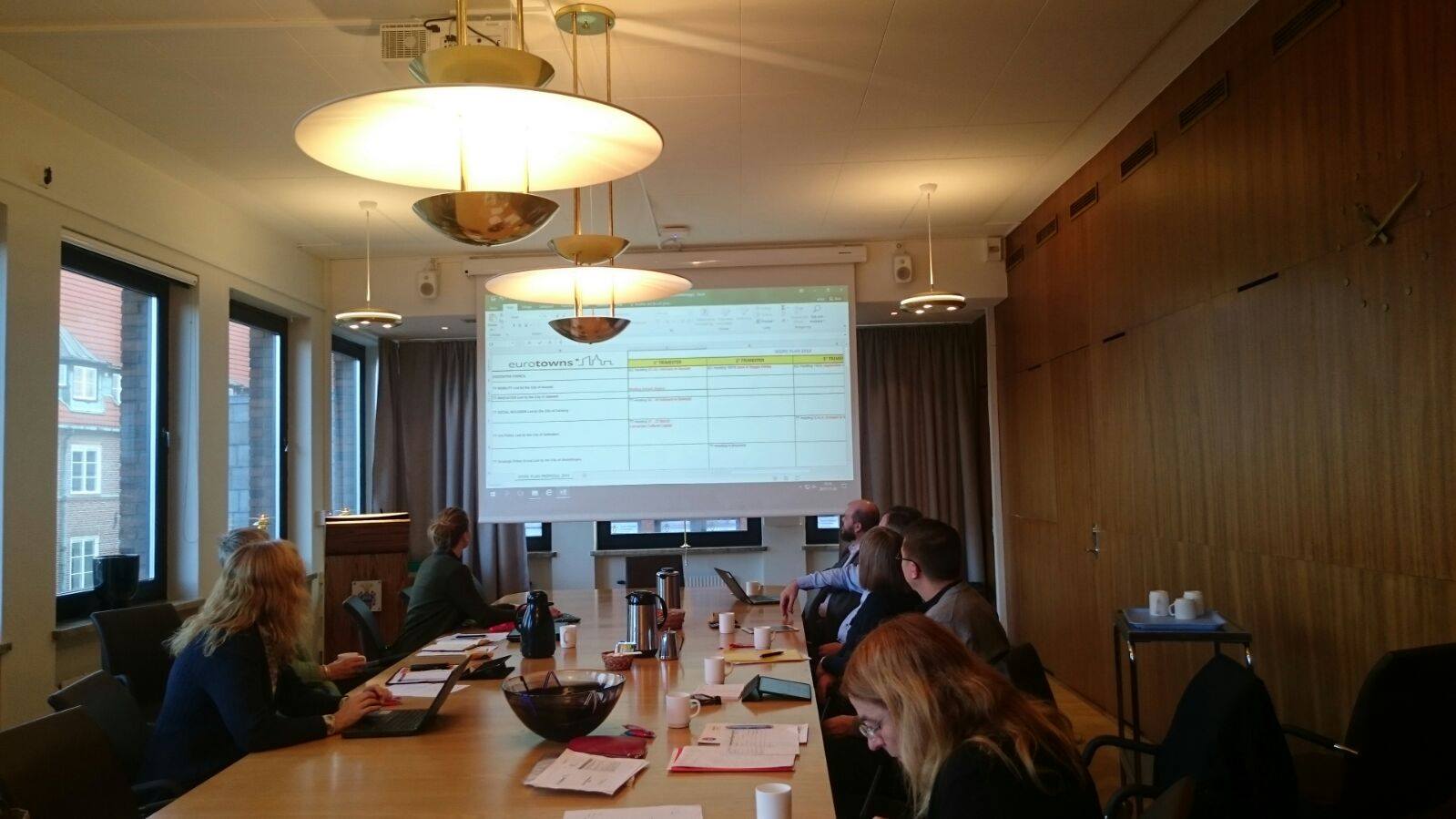
Focus to foster the dialogue for social sustainability and inclusion
Name of TT leader:
City of Varberg
Main topics:
- Supporting the EU goal “Growth for all”.
Objectives:
- Focus on new skills and jobs and to combat poverty and social exclusion.
Past, ongoing and future projects:
- There was a TT Meeting was on 10 – 11 October 2019 in Halmstad and Varberg with a focus to foster the dialogue for social sustainability and inclusion.
- The last virtual TT Meeting was held on 10 December 2020 in order to discuss the work programme for 2021. Please find the report here
- The last Task Team meeting was about the topic „Socially inclusive neighborhoods“on 26 May.
Contact for TT:
Lotta Olanya – Inclusion Strategist, City of Varberg
lotta.olanya@varberg.se
Kristina Hylander – Development Manager, City of Varberg
kristina.hylander@varberg.se
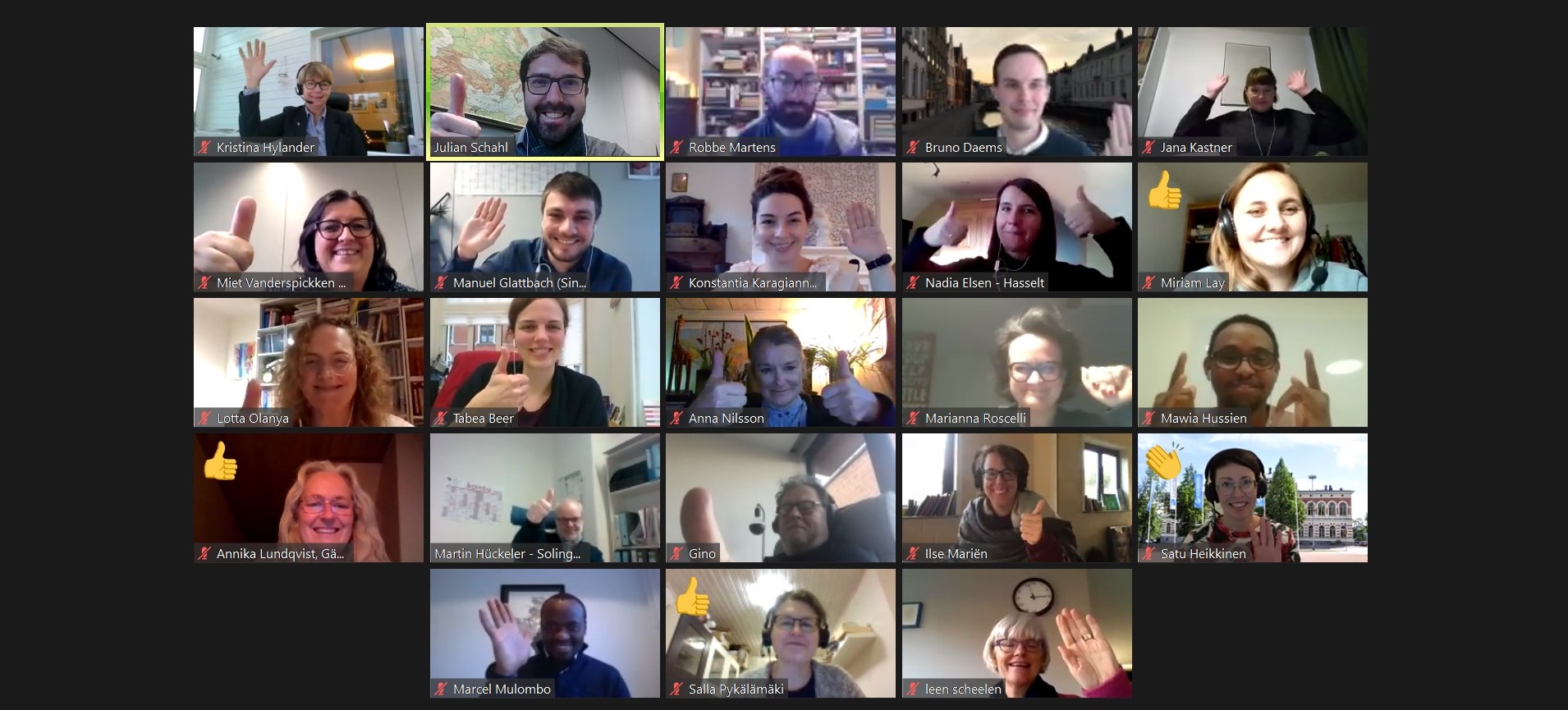
Eurotowns network – Global Goals, local strategies to develop and implement
A short video contribution of the Task Team can be found here
Name of TT leader:
City of Solingen
Main topics:
- Local strategies to develop and implement the SDGs
- How to make the SDGs more visible on local level
- How to get access to funding programs
- The SDGs as thematic support for other TTs
Objectives
1. Raising awareness / participation / cooperation
- Good dialogue/communication
- To make the implementation of SDGs visible
- To work out best practice to improve participation
- To define new tools to raise awareness (e.g. SDG-Game)
- Connecting with the SPG
- To create “good life” in the cities
2. Methods / content / actors
- To combine the work with external input (experts)
- Exchange on how to cooperate with civil society / changemakers etc.
- Exchange innovative approaches to get involved
Economic sector and
Youth - Inspiration from each other and to / from others
- Together we are stronger than when we are alone
3. General exchange and funding acquisition as a permanent feature
4. Not directly as a focus, but the question of indicators needs to be considered
Past, ongoing and future projects:
- Launch of the Task Team Global Goals with a kick-off meeting in May 2019 in Solingen
- The sustainability strategy of Solingen as a best practice – Workshop during the EWRC in Brussels 2019
- TT meeting in Manresa in November 2019 “Making the SDGs visible”
- Project idea for the mobility week in September 2021 “On the road for a better life” – best practices of sustainable mobility in the Eurotowns member cities as a joint event
- Closer link to the URBACT pilot network on SDGs where our member cities Gävle, Manresa, Reggio Emilia, Schiedam and Solingen are participating in order to create synergies for the Eurotowns network. More information can be found here: Global Goals for Cities | URBACT
Contact for TT:
Martin Hückeler – Head of Funding Management and European Affairs, Municipality of Solingen
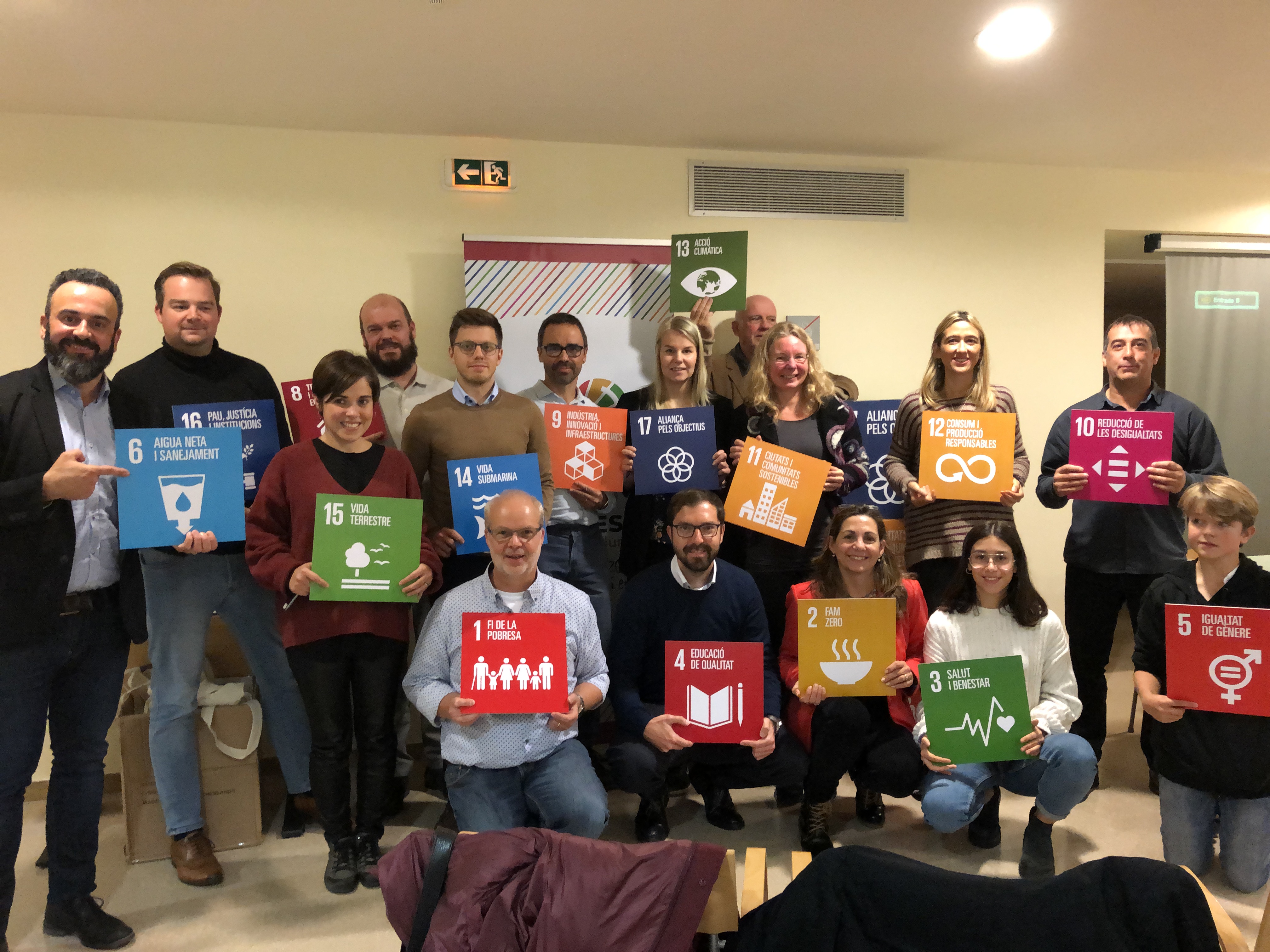
Strategic Policy Group – Strengthening policy influencing at the European level for medium-sized cities
Name of TT leader:
City of Sindelfingen
Main topics:
- Policy influencing activities
- Political outreach
- Promoting the interests of medium-sized cities
Objectives:
- Strengthening policy influencing at the European level for medium-sized cities
- Developing stronger linkages between EU institutions and local authorities
- Fostering strategic alliances at the EU level to raise the potential of medium-sized cities
- The last SPG meeting was be about the topic „the role of medium-sized cities in European Multi-Level Governance“ on 17. June.
Contact for TT:
Julian Schahl – European Coordinator, City of Sindelfingen
j.schahl@sindelfingen.de
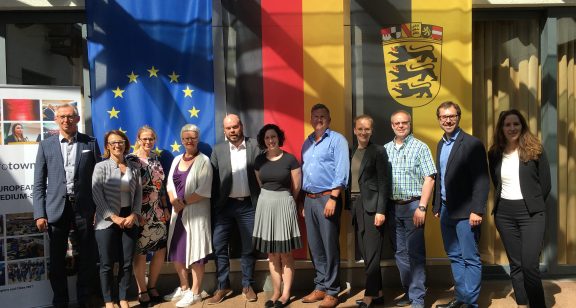
Inner City – Attractiveness, Culture, Tourism and Sustainability
Name of TT leader:
Municipality of Reggio Emilia
Main topics:
During the last GA 2020 a new Task Team on Inner City has been launched. The historic city centre is experiencing a moment of strong rethinking due to the difficulties of merchants and to the changing lifestyles, demand and consumption of citizens. The demographic change, combined with the revolutions in terms of commercial offer and consume demand, forces cities to rethink spaces, relations in the city centre and the type of governance with different stakeholders. The recent difficult situation linked to Covid-19 pandemic is making it even harder for our retailers. In this regard, especially medium-sized cities have to redefine their integrated policies on the historic centre to keep them as resilient places. Attractiveness, culture, tourism and sustainability are important factors to understand and to promote a new idea of the historic centre.
The first meeting was in September 2020. Attractiveness and dynamism of the city centre as well as governance as thematic foci have been identified.
Attractiveness and dynamism of the inner city
Could a city centre still represent an attractive place for investment and resources? Which proposals and tools are necessary to make inner city centres attractive? How to innovate services and products? How to relaunch businesses (shops, retail and other businesses) by offering new models to consumers?
Governance
How to structure dialogue, relations and projects between the Local Administrations and the different stakeholders? (Chamber of Commerce, owners of retail shops, public businesses, associations of property owners…) How to create a knowledge and assessment framework to design shared local policies? Which leverages to build up collaboration, dialogues and trust? How to promote innovative aspects?
Objectives:
The aims of the Task Team are to start a dialogue on the “historic city centre” and the importance of a dialogue within the Eurotowns network to find common solutions for similar problems which have become, also due to the COVID -19 pandemic, even more urgent. Many medium-sized cities are facing similar problems related to the revitalization of the inner city, the regeneration of private and public spaces as well as the redevelopment of cultural, commercial and social activities. With this Task Team we want to share best practices and to strengthen the policies of regeneration in order to have a relaunch on the historic city centre.
November/December 2020:
- Exchange of best practices
- Definition of the work programme for 2021/2022
January 2021:
- The first online Task Team meeting in 2021 was held on 20 January in order to discuss the work programme for this year. Please find the report here
March 2021:
- The first thematic workshop was held on 17 March about the topic of “Urban attractiveness in post-COVID: trends and developments” with a key note speech by Mingardo Giuliano from the Erasmus centre for urban, port and transport economics at the University of Rotterdam.
- The 2nd online thematic workshop on Inner City was held on 18. June and the 3rd workshop is planned for november this year. Stay tuned.
Contact of TT:
Marianna Roscelli
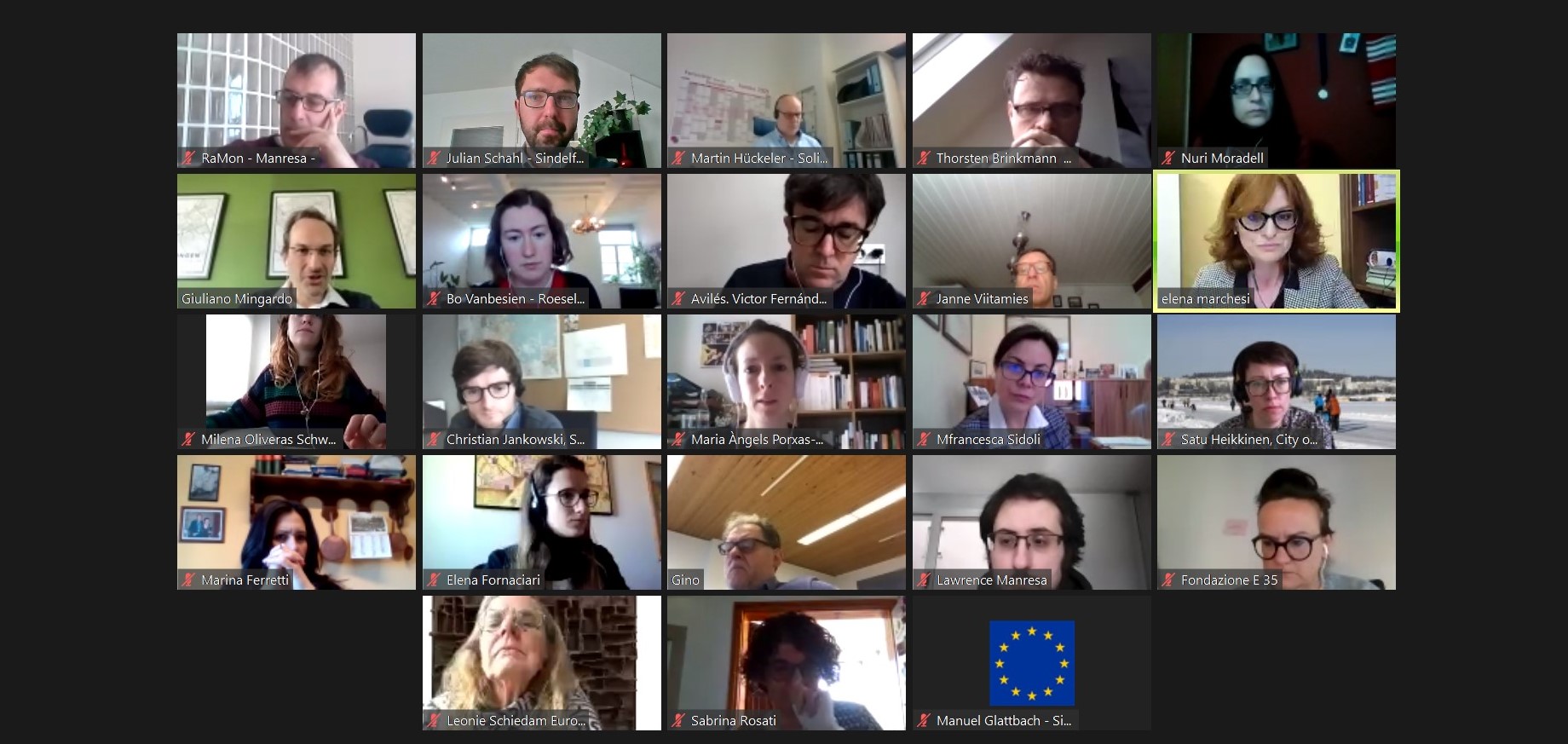
Sustainable Industry
Name of TT leader:
City of Avilés
Main topics:
- Industrial technology and innovation / Emerging industries
- Industry and Sustainability / Decarbonisation
- Industrial Heritage and Culture
- Brownfield reclamation / New uses for old sites
Objectives:
The role manufacturing activities are playing in European economies has been subject to a resurgence of interest for several years already and has resurfaced at the top of the EU policy agenda. Thus, Industry remains a key challenge for many European medium-sized cities, including several from Eurotowns. Bering in mind this premise, the objectives of the TT are:
- To serve as a meeting point to discuss and exchange experiences on the influence of medium-sized cities in the future of the EU Industrial Strategy
- To assess the role of medium-sized cities in the EU Industrial Ecosystems, the new industrial policy approach in EU
- To generate synergies between external stakeholders in our cities (industrial technology centers, private companies and universities) to increase joint industrial innovation (cooperation agreements)
To foster cooperation within the Eurotowns network, encouraging mutual learning and supporting urban and industry-related projects.
Past, ongoing and future projects:
Launch of the Task Team on Sustainable Industry with a virtual kick-off meeting on 30 November 2021. Event focused on establishing the context of European industry and its interrelation with medium-sized cities through the case of Avilés. Questionnaire for TT members has been sent out in order to find out their priorities and objectives for their cities in relation to the identified topics.
Contact for TT:
Victor Fernández Martín
